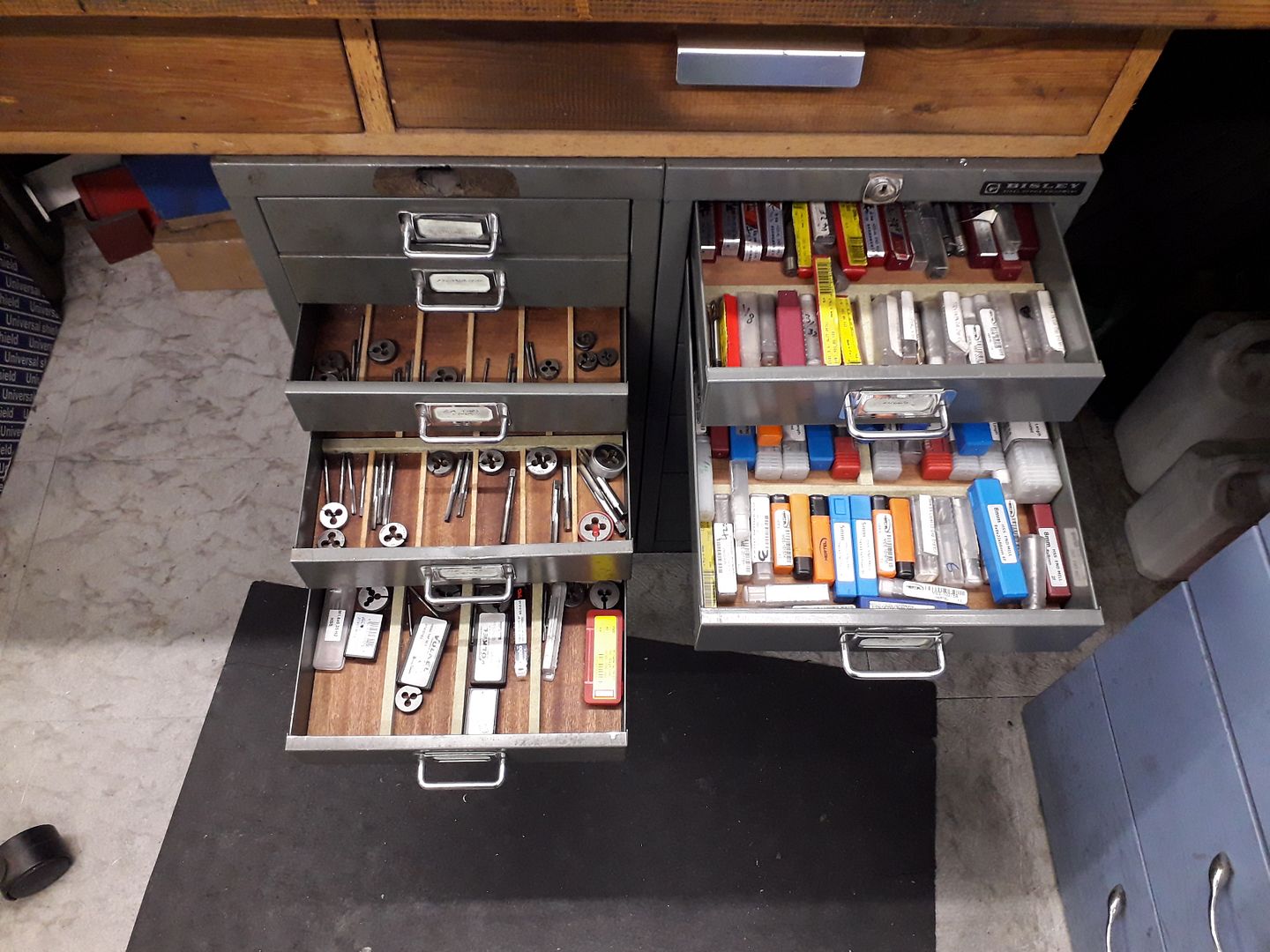Posted by Jelly on 20/03/2023 22:22:53:
Can anyone point me at a supplier which offers a decent quality (metric) tap and die set in HSS, for a reasonable (for the quality) price?
…
Though I sort of know what you mean, the answer is 'no'!
Sorry to indulge a personal hobby horse, but words like 'decent', 'quality' and 'reasonable' are all meaningless in this context. Better to identify what the tools are for, and then define exactly what 'Fit for Purpose' and 'Value for Money' mean in your particular circumstances.
For example:
- I'm a general hobbyist working mainly in metric (most sizes). I cut hundreds rather than thousands of threads per year, mainly in free-cutting metals. I almost always align taps and dies in a mill or lathe rather than manually. Tools are lightly loaded and used carefully. In my case, 'Fit for Purpose' and 'Value for Money' are easily met by mid-range tools from Tracy, ArcEuro and similar. At my age and rate of work I'm unlikely to wear many of them out.
- My requirement is different from say Andrew or Jason. Andrew runs a time-is-money workshop, which means he values tools with a high-service life that deliver reliable value for money when worked hard. Though Jason is a hobbyist I reckon he cuts about 30 times more metal per year than I do, a rate of work that makes his tool requirements closer to Andrew's than mine.
- The way we each use our tools creates 3 overlapping views of what constitutes 'Decent', 'Quality' and 'Reasonable'. The tools that are 'Fit for Purpose' and 'Value for Money' in my workshop are unlikely to meet Andrew's criteria. Judging by Jason's posts, his buying policy is a smarter version of mine: he also buys mid-range, but orders more knowledgeably than I do when it matters.
- I guess we all treat taps and dies as consumables, not heirlooms!
Workshop requirements also decide whether sets are good or not. Starting with a set makes good sense for general threading in many sizes, and replacing bust taps and dies as necessary makes good sense. Alternatively, standardising on a few sizes only so that a set isn't needed, makes better sense in a more tightly focussed workshop. There is no right or wrong answer, it depends.
Wasting time and money are the most unforgivable sins in professional engineering. Just mismatch the requirement and solution:
- Buy a dirt cheap set of taps and dies, most of which don't get used, that can't cope with the job. Bad idea to order a cheap metric set to tap 200 M3 threads in a sheet of work-hardening stainless!
- Spend money you can't afford at high-end taps and dies and then fail to use them to the full, perhaps leaving cupboards full of NOS to the executors.
Mistakes can be reduced by engaging brain, but learners are a special case: one way of finding out what's really needed is to buy an inexpensive set and try it. I found they work well enough for me provided they're handled carefully and not asked to do too much. I usually cut larger threads by first removing most of the metal with my lathe, so the die only does a minimal tidy up. This is very different to die-cutting rod at full depth with a big wrench, as is often necessary when the thread has to be cut in a hurry! The way the tool is used alters the choice. Hobbyists are another special case – no harm in wasting money on posh tools if it's fun and one has a plenty of spare dosh!
In general there are no 'Wonderbrand' tools providing Everyman with 'decent quality' at hobby-reasonable prices. Instead, there are:
- too-cheap tools, brittle due to poor heat-treatment, and badly ground.
- mid-range tools, properly heat-treated and adequately ground, but made down to a price, and inferior to the best money can buy.
- high-end tools, well-made with close attention to detail, using the most appropriate materials, and carefully optimised for the job in hand. They tend to be eye-watering expensive.
A cruel world and I've had to learn to manage my expectations! Starting out, I assumed the best tools would be within my price bracket, and they're not. Second-hand is worth trying, but know good makes are only a good buy if they're in good condition.
The best I can suggest to beginners is to decide if your work pattern will be most like mine, Jason's, or Andrew's. If like mine, inexpensive tools work reasonably well most of the time within their limits. If like Andrew, there's a high risk the inexpensive tools I find satisfactory will be taken beyond their limits and not last long enough to have been worth Andrew's money. I suspect workers in Jason's class build up a mix of tools selected by experience: inexpensive when they're 'good-enough', otherwise money is coughed up as required. A fourth category is people who enjoy owning good tools, whatever that means, in which case they're free to spend their money as they want.
Maybe the only thing to avoid is going into dither-mode, it's a practical hobby, and hands-on and practice answer many questions.
Haven't consulted Jason or Andrew, and they might disagree with my perception. Everything I've said about them could be wrong, but it's how I target tool buying…
Dave
Jelly.





